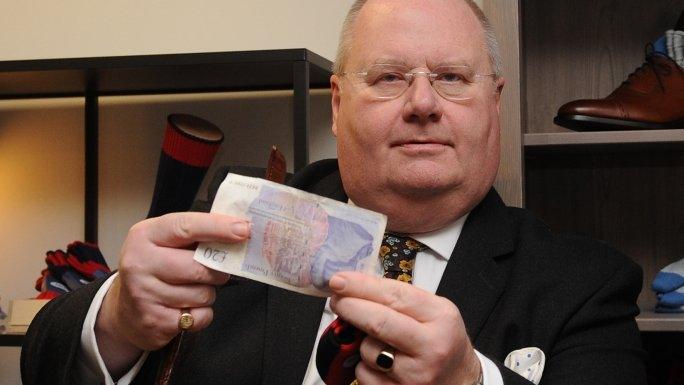Minister outlines funding 'cut of 1.8%' for English councils
- Published
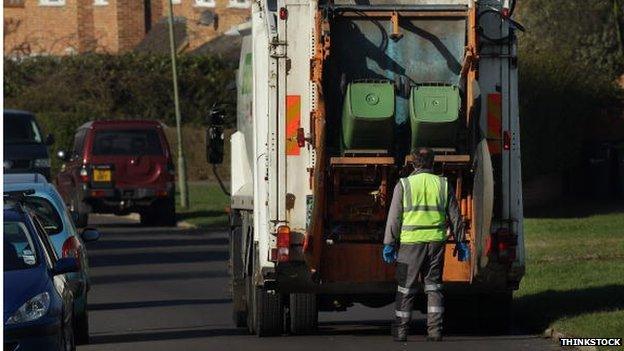
Councils get most of the their funding from central government
English councils will face an average cut of 1.8% in their overall spending power, the government has said.
Minister Kris Hopkins said the funding grants settlement for 2015-16, external was "fair for all parts of the country".
He said no council would face a loss of more than 6.4% - but Labour said councils in the greatest need were facing the biggest cuts in funding.
Local authority bosses said cuts of up to 6.4% would "push some authorities to breaking point".
Councils in England say the amount they receive from central government is being cut by 8.8%.
But central government says the amount they can spend - taking into account other resources, including business rates - will fall on average by 1.8%.
Most local authority funding comes from central government, with about a quarter raised through council tax.

Analysis
Anthony Reuben, head of statistics, BBC News
The figure of an average cut of 1.8% in the spending power of English councils is not an entirely helpful one.
The spending power figure combines regular central government funding with one-off grants and things like council tax, a proportion of business rates and other fees and charges.
The Local Government Association calculates a figure excluding council tax and part of the Better Care Fund that it does not think is going to go to councils, and it reckons that funding is going to fall by an average of 8.8% next year.
And both of these figures ignore inflation. It's getting more expensive to dispose of waste, provide social care to an ageing population and employ staff even if they're only getting a 1% pay rise.
It means that savings of considerably more than 1.8% in some services will be needed.

Local Government Minister Mr Hopkins told MPs the settlement still left councillors with "considerable total spending power" and many councils were seeing growth in income from business rates. He said the actual drop in spending power was 1.6%, when other grants were taken into account.
He said, with an "unprecedented challenge to public finance" the government had "delivered a settlement that is fair for all parts of the country, whether North or South, urban or rural".
"Councils facing the highest demand for services continue to substantially receive more funding and we continue to ensure that no council will face a loss of more than 6.4% in spending power in 2015-16, the lowest level in this Parliament."
The minister told MPs that all councils had achieved a balanced budget in 2014-15, and, he said, the "majority of residents remain satisfied with the way their council has run things".
And he urged councils to use "freeze funding" provided by the government to keep council tax down. Councils which choose to increase their council tax by more than 2% will continue to have to hold a local referendum on the issue, he said.

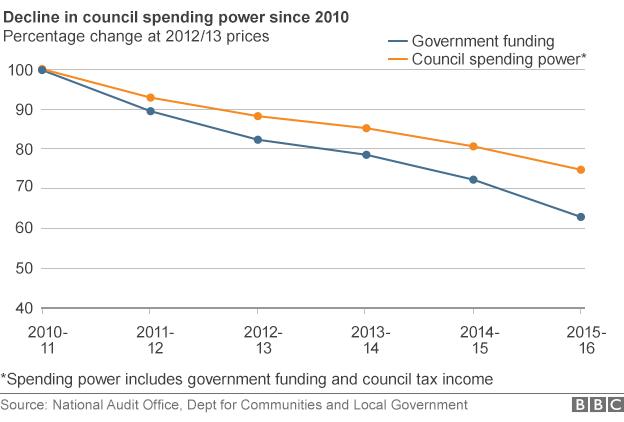

Birmingham - the largest local authority in the UK - is facing cuts next year of £117m and similar savings each year until 2018.
Labour's Hilary Benn said councils resented the government suggesting cuts were "modest". He said that councils serving the poorest areas had seen the largest reduction in funding "relative to spending".
He said that the city of Liverpool, by 2017, would have lost more than half of its government grant - compared with 2010.
"Councils are showing clear signs of financial stress," he said, asking what contingency plans were in place "to deal with the failure of local councils".
"There is no justification for taking most from those who have least."
He asked how many children's centres would have to close, what the effect would be on women's refuges and day centres for the elderly.
The provisional settlement announced by Mr Hopkins will need the approval of Parliament.

Analysis
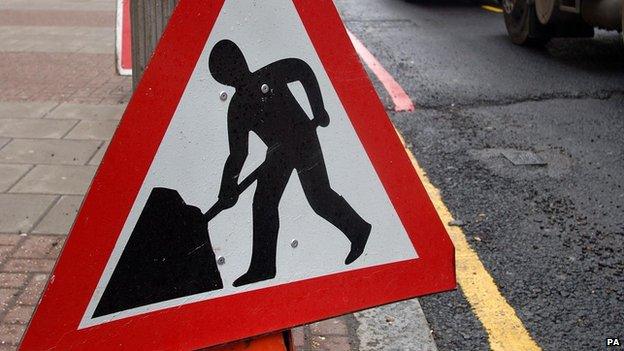
Mark Easton, BBC Home Editor
Back in 1963, the earliest year for which I have found figures, local councils employed about two million people, 200,000 more than Whitehall. Ten years later, and the local authority workforce was close to three million and almost 900,000 greater than central government.
Today, though, the situation has almost completely reversed, with half a million more people on the national payroll than the local one. Indeed, the number employed by local authorities has fallen more than half a million since the last election.
In many towns and cities, the council was once the biggest employer by far. Nowadays, that's much less likely to be true and may be changing the relationship between local people and the local authority. Councils have become more of a service commissioner than the heartbeat of the local economy.

The National Audit Office, external (NAO) estimates that by 2016, government funding for local government will have dropped in real terms by 37% since 2010.
Graeme McDonald, director of the Society of Local Authority Chief Executives and Senior Managers said: "This settlement reminds us that the financial challenge facing local government is immense. Cuts of up to 6.4% will push some authorities to breaking point.
"Government is beginning to recognise that councils have led the way on deficit reduction, but with cuts and demand increasing, fragility is beginning to show. The financial future of local services is unsustainable without a more ambitious plan for public service reform."

What do local councils do?
County councils, unitary authorities, London and metropolitan borough councils, (in big cities like Birmingham and Liverpool) run education services, transport, planning, fire and rescue services, libraries, social care, waste management and trading standards
District councils usually run services like: bin collections, recycling, council tax, housing, planning applications.

Councils are legally required to provide some services, such as adult social care, meaning most of the cuts have fallen in other areas, including leisure and culture.
Last month the NAO said some authorities were showing "clear signs of financial stress", but many had "coped well" with cuts, adding that there were "significant differences" in the size of budget cuts faced by different council areas, with those that depend most on government grants the hardest hit.
Earlier this month, Scottish local authorities were told they would get funding of almost £10.85bn in return for freezing council tax for the eighth year in a row, but Labour warned that people on lower incomes were the "hardest hit" by funding cuts.
Councils in Wales have been told they will get £146m less in 2015-16 from the Welsh government, an overall cut of 3.4% on this year.
- Published18 December 2014
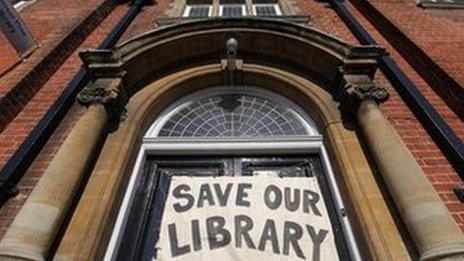
- Published18 December 2014
- Published5 December 2014

- Published19 November 2014
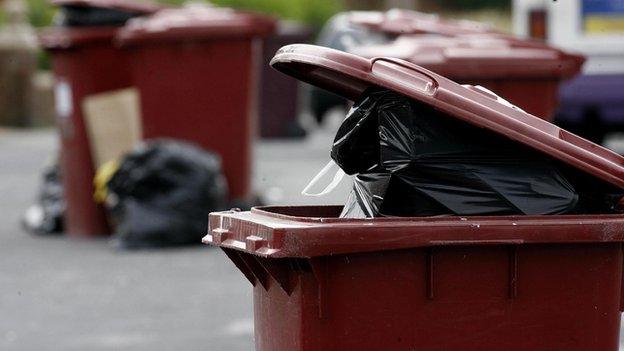
- Published19 December 2012
